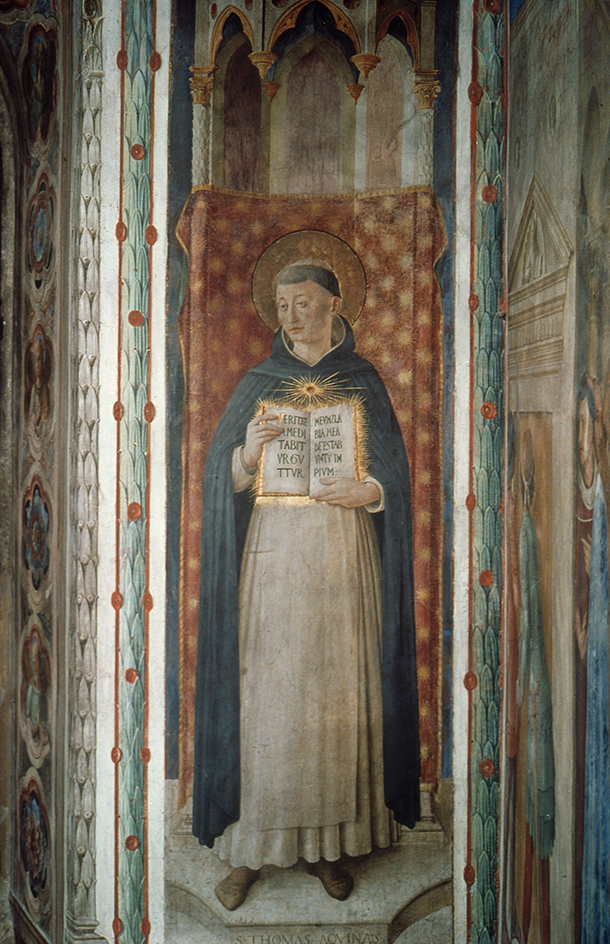Aquinas, << uh KWY nuhs, >> Saint Thomas (1225?-1274), was one of the greatest medieval philosophers and theologians. Through the centuries, he has influenced Christian—especially Roman Catholic—thought.
His life.
Thomas was born of a noble family in Roccasecca, Italy, near Cassino. He attended the University of Naples from 1239 until 1244, when he joined the Dominican order. He was ordained a priest in 1250. From 1245 to 1252, he studied philosophy and theology under the German theologian Saint Albertus Magnus. In 1256, Thomas was named professor of theology at the University of Paris. There, he became famous because he developed his intellectual talents in the service of the Christian faith.

In 1258, Thomas began to write the Summa contra Gentiles. In this work, he tried to convince non-Christians that the doctrines of Christianity were not contrary to reason. From 1259 to 1268, Thomas wrote commentaries on many writings of the ancient Greek philosopher Aristotle. In 1265, he began to write his most famous work, Summa Theologica, in which he tried to systematically explain Christian theology. But Thomas had a mystical experience in 1273 that caused him to stop writing. He said that all he had written seemed like straw compared with what he had seen in this experience. Thomas’s feast day is January 28. He died on March 7, 1274.
His thought.
Thomas combined Aristotle’s teachings with Christian doctrine. For example, Thomas argued that no conflict exists between reason and faith. Philosophy is based on reason, he declared, and theology comes from faith in divine revelation, yet both come from God. So Thomas believed that any differences between divine revelation and the conclusions of philosophy result from faulty reasoning. He also maintained that reason can support faith. Thomas accepted—on faith—the idea that God exists. However, he formulated five proofs of His existence to support such a belief.
According to Thomas, all people desire happiness, but they can satisfy this desire only through direct communion with God. He believed that God gives grace to help human beings overcome the influence of sin and achieve this communion. Thomas taught that the sacraments are important in communicating God’s grace to people.
Thomas believed that governments have a moral responsibility to serve people and to help them lead virtuous lives. He declared that governments must not violate what he considered human rights—life, education, religion, and reproduction. Thomas also taught that—to be just—laws passed by human beings must not contradict divine law.
